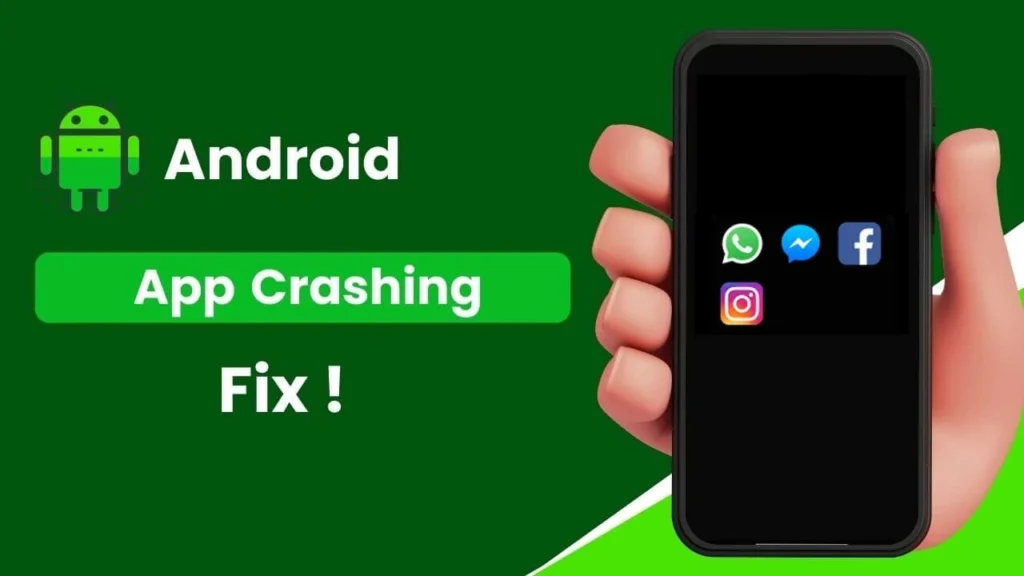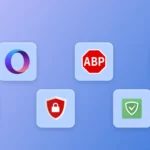If your Android apps crashing, it’s usually due to outdated software, limited device resources, corrupted data, or compatibility issues between the app and the Android OS. These issues are well-documented in Android developer resources. Fortunately, most of them can be resolved with simple fixes or preventive steps.

Content
Common Causes Behind Android App Crashing
Understanding why an app malfunctions is key to resolving it effectively. Below are the most prevalent causes for Android apps crashing:
Incompatible App Updates
When an app is updated but the Android operating system isn’t, it can result in performance issues. The app may try to access features or APIs not available on your device, leading to repeated app crashing on Android.
Insufficient Storage or RAM
Low storage or memory can cause apps to behave unpredictably or close unexpectedly. If your Android app crashes on launch, this could be due to memory exhaustion as background services compete for limited system resources.
Android OS Conflicts
When apps haven’t been updated to align with the latest version of Android, conflicts may arise. This often results in Android apps crashing after a system update—something that frustrates users unaware of the cause.
Network Connectivity Problems
Apps that depend on real-time data (social media, finance, messaging) may crash when there’s a weak or fluctuating connection. This is particularly common in apps that don’t implement error-handling for offline use.
Corrupted App Cache or Data
A corrupted cache or saved data can destabilize an app. Clearing cache and app data is one of the most effective ways to stop an Android app that keeps stopping.
Device-Specific Bugs
Sometimes, an app works on most devices but fails on specific models due to hardware differences or manufacturer-level Android customizations.
Conflicts from Third-Party Applications
Background apps can interfere with others. Antivirus programs, memory boosters, or even screen overlay apps may conflict and lead to Android apps crashing unexpectedly.
Recognizing the Errors: Common Crash Symptoms
To troubleshoot effectively, it’s important to recognize crash indicators and messages.
“Android App Keeps Stopping” Pop-Up
This is one of the most common alerts users see when an app becomes unresponsive. Tapping “App Info” or “Close App” doesn’t address the root issue.
Crash Logs and How to Access Them
For advanced users and developers, Android app crash logs provide vital diagnostics. You can retrieve logs using Android Studio’s Logcat tool or third-party monitoring solutions.
No Error Message at All
Occasionally, an Android app crashes without any error message, complicating diagnosis. This usually points to issues with resource limits or background service interruptions.
Frequent Error Types
Errors such as Null Pointer Exceptions or Out of Memory errors are common causes. A Null Pointer Exception, for instance, happens when the app tries to use data that hasn’t been initialized properly.
How to Fix Android App Crashes: A Step-by-Step Guide
Here are proven solutions to fix your Android app crashing problems, starting from the simplest.
Restart the App and Your Device
Begin by restarting the app. If that doesn’t work, reboot your device to clear memory and background processes that might be causing the crash.
Clear App Cache and Data
- Go to Settings → Apps
- Select the crashing app
- Tap “Storage”
- Tap “Clear Cache” and then “Clear Data”
This step is especially useful if your Android app crashes on startup or after a recent update.
Update the App and Your OS
Head to the Google Play Store and check for app updates. Similarly, go to Settings → Software Update to make sure your Android system is current. Fixes for Android apps crashing are often included in these patches.
Reinstall the App
Uninstalling and reinstalling the app ensures you have a fresh, uncorrupted copy. This often resolves crashes stemming from improper installation or damaged files.
Free Up Storage and RAM
Use your device’s storage manager to identify and remove unused files and apps. Closing background processes also frees up memory for apps to run smoothly.
Check App Permissions and Background Restrictions
Some apps require access to features like location, storage, or background processing. Navigate to Settings → Apps → Permissions and ensure the necessary permissions are enabled.
Boot into Safe Mode
To isolate third-party interference, boot your device into Safe Mode. If the Android app crashing issue stops, another app is likely the culprit.
- Hold the power button
- Tap and hold “Power off”
- Select “Reboot to Safe Mode”
Factory Reset as a Last Resort
If none of the above methods work and multiple apps are affected, a factory reset may be needed. Backup your data before proceeding.
Developer-Focused Prevention for App Crashing on Android
If you’re an app developer, preventing Android apps from crashing involves proactive monitoring and coding discipline.
Utilize Crash Analytics Tools
Platforms like Firebase Crashlytics and Sentry help developers gather real-time Android app crash reports and identify root causes efficiently.
Test Across Multiple Devices
Thorough testing on different devices, screen sizes, and Android versions ensures consistent performance and fewer device-specific bugs.
Implement Exception Handling
Using try-catch blocks and validation techniques helps catch potential errors before they cause the app to crash.
Optimize Memory Usage
Memory leaks are a common cause of Android apps crashing. Use tools like LeakCanary or Android Profiler to monitor memory consumption and optimize code accordingly.
Automate Crash Monitoring
Incorporate Android app crash monitoring tools that alert your team to issues as they arise. This allows for rapid response and improved user experience.
When to Seek Help or Change the App
If repeated crashes persist even after applying the above fixes, it may be time to contact the app’s developer. Go to the app’s page in the Play Store and tap “Contact Developer.” Provide a detailed crash log if available.
In some cases, opting for a more stable alternative app may be the best course of action, especially if the app is no longer actively supported.
Final Thoughts
Addressing the issue of Android apps crashing requires a structured approach—starting with basic user-level fixes and extending to advanced developer practices. By understanding the common causes and applying targeted solutions, users and developers alike can significantly reduce app instability and enhance user experience.
Frequently Asked Questions
Why Does My Android App Keep Crashing?
It could be due to outdated software, corrupted data, lack of memory, or incompatible updates. Start by updating the app and clearing its cache.
Why Do Apps Crash After an Android Update?
Updates may introduce changes that older versions of apps aren’t built to handle. Developers typically release fixes shortly after major OS updates.
What Is the Best Way to Get a Crash Report?
Use Android Studio’s Logcat for real-time logs or tools like Firebase Crashlytics for detailed analytics.
Why Does an App Crash with No Error Message?
This usually indicates background interference, memory exhaustion, or unhandled code exceptions that cause abrupt termination.
Can Low RAM Cause App Crashes?
Yes. Apps require a minimum amount of RAM to function. If RAM is being heavily used by other processes, it may result in Android apps crashing.

I’m Kelly Hood! I blog about tech, how to use it, and what you should know. I love spending time with my family and sharing stories of the day with them.












